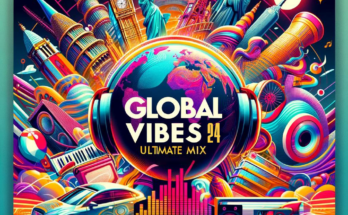The 1990s marked a significant turning point for African music on the global stage. African hits dominated the charts and influenced the music industry in ways that had never been seen before. This blog post will explore the impact of African music in the 1990s and its enduring legacy.
Key Takeaways
- African hits rose to prominence in the 1990s, dominating global charts and shaping the decade’s music scene.
- The emergence of new genres in African music, such as Afrobeat and Kwaito, contributed to its popularity.
- African charts played a significant role in promoting African artists and shaping the music industry.
- The impact of African music on global pop culture in the 1990s was significant and enduring.
- The legacy of 1990s African hits continues to influence contemporary music and promote African culture and identity.
The African Music Scene in the 1990s: A Brief Overview
The African music scene in the 1990s was diverse and vibrant. Artists from across the continent were experimenting with new sounds and styles, blending traditional African rhythms with Western pop and other global genres. This fusion of influences created a unique and exciting musical landscape that captivated audiences around the world.
African Hits that Dominated the Global Charts in the 1990s
Several African hits gained international recognition in the 1990s, solidifying Africa’s place on the global music stage. Songs like “Pata Pata” by Miriam Makeba and “Zombie” by Fela Kuti became iconic anthems that showcased the power and beauty of African music. Other hits like “Yéké Yéké” by Mory Kanté and “Waka Waka” by Shakira (featuring Freshlyground) were inspired by African rhythms and further contributed to the popularity of African music.
The Role of African Charts in Shaping the Decade’s Music Scene
African charts played a significant role in promoting African music during this time. The South African Top 20 and the Nigerian Music Charts, among others, provided a platform for African artists to showcase their talent and gain recognition. These charts not only helped to promote individual artists but also influenced the music industry as a whole by introducing new sounds and styles.
The Emergence of New Genres in African Music in the 1990s
The 1990s saw the emergence of new genres in African music, further diversifying the continent’s musical landscape. In South Africa, Kwaito became a popular genre, blending house music with traditional African rhythms. In Nigeria, Afrobeat gained prominence, fusing traditional African music with elements of jazz, funk, and highlife. These new genres showcased the creativity and innovation of African artists and contributed to the global popularity of African music.
The Impact of African Music on Global Pop Culture in the 1990s
African music had a profound impact on global pop culture in the 1990s. It inspired new dance crazes like the Macarena and the Lambada, which were heavily influenced by African rhythms and dance styles. Additionally, African artists like Youssou N’Dour and Angelique Kidjo collaborated with Western artists and gained international recognition, further solidifying Africa’s influence on the global music scene.
The Evolution of African Music Videos in the 1990s
African music videos in the 1990s were innovative and creative, showcasing African culture and identity. They introduced new styles and techniques to the music video industry, pushing boundaries and challenging traditional norms. These videos not only entertained audiences but also served as a visual representation of Africa’s rich cultural heritage.
The Legacy of 1990s African Hits: Influence on Contemporary Music
The influence of 1990s African hits can still be felt in contemporary music. Artists like Beyoncé and Drake have incorporated African rhythms and styles into their music, paying homage to the rich musical heritage of the continent. This fusion of influences has created a new wave of Afrobeat-inspired music that continues to captivate audiences around the world.
The Role of African Artists in Promoting African Culture and Identity
African artists in the 1990s played a crucial role in promoting African culture and identity. Through their music, they showcased the diversity and richness of African music and culture, challenging stereotypes and misconceptions about Africa. They became ambassadors for their countries and the continent as a whole, using their platform to celebrate Africa’s heritage and inspire future generations.
The Enduring Influence of 1990s African Hits on the Music Industry
The impact of African hits in the 1990s on the music industry cannot be overstated. They showcased the diversity and richness of African music and culture, paving the way for future generations of African artists. Their enduring legacy can be seen in contemporary music and the continued popularity of African music on the global stage. African music has become a powerful force in shaping the global music industry, and its influence shows no signs of slowing down.
If you’re a fan of 1990s African Hits: The Decade’s Most Influential Global Tracks, then you’ll definitely want to check out this article on MusicCharts24. It features the latest crossover hit by H2SO4 titled “Bad Habits.” This track seamlessly blends different genres and showcases the influence of African music on the global stage. Click here to read more about this exciting release and discover how it adds a modern twist to the nostalgic sounds of the 90s: https://www.musiccharts24.com/h2so4-drops-their-latest-crossover-hit-bad-habits/
FAQs
What is the article about?
The article is about the most influential African music tracks of the 1990s that had a global impact.
What is the significance of the 1990s in African music?
The 1990s was a decade of significant change in African music, with the emergence of new genres and the rise of African artists on the global stage.
Which African countries are represented in the article?
The article features music from various African countries, including Nigeria, South Africa, Senegal, and Congo.
Who are some of the artists featured in the article?
The article features music from a range of African artists, including Fela Kuti, Youssou N’Dour, Brenda Fassie, and Miriam Makeba.
What genres of music are represented in the article?
The article covers a range of genres, including Afrobeat, Highlife, Kwaito, and Mbalax.
What is the impact of African music on the global music scene?
African music has had a significant impact on the global music scene, with many African artists achieving international success and influencing the development of new genres of music.



